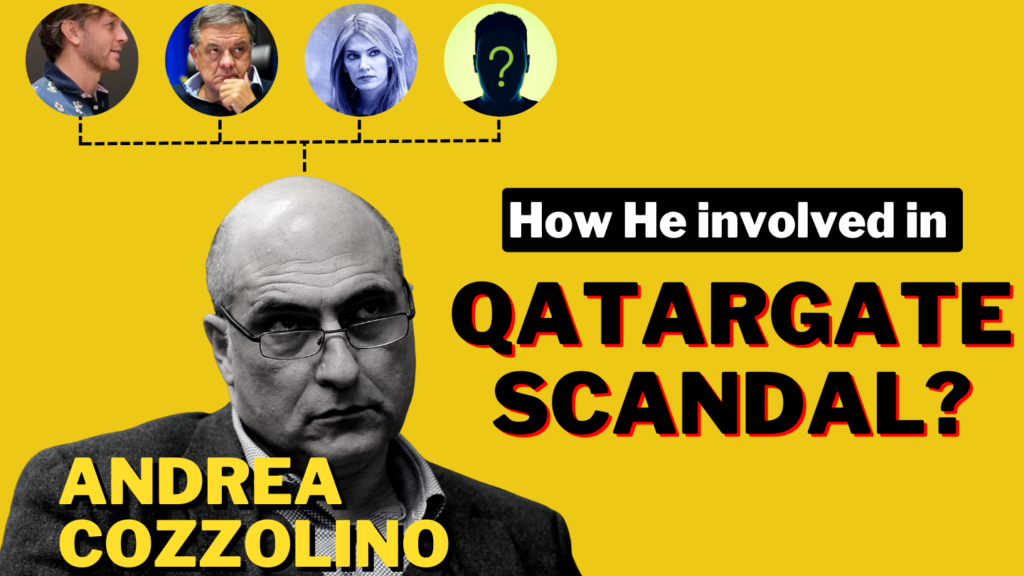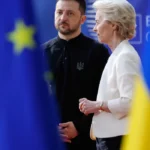Italian MEP Andrea Cozzolino, who was first elected in 2009, has been arrested on charges of corruption linked to the Qatargate scandal. Cozzolino is accused of accepting money from Qatar and Morocco through his former boss and colleague, MEP Pier Antonio Panzeri, who is also being investigated in the case. The allegations suggest that the money was used to influence the decisions of the European Parliament regarding human rights abuses in those countries.
Cozzolino belonged to the socialist group until his suspension in December 2022 when he was also asked to step down as chair of the delegation for relations with Maghreb countries. Like Panzeri, Cozzolino emerged as a potential suspect in December but was not apprehended until his parliamentary immunity was lifted in February. This led to his arrest in Naples by Italian police under a European arrest warrant, while the MEP was leaving a health clinic. Cozzolino remains under house arrest as he fights an extradition request. His hearing before a Naples court has been delayed three times.
Qatargate scandal and Cozzolino’s involvement
In his leaked confession, Francesco Giorgi directly accused Cozzolino, his former boss, and MEP Marc Tarabella of accepting money from Qatar and Morocco through Panzeri. Cozzolino’s lawyer has repeatedly denied these claims and says his client is “calm” and ready to defend his innocence before the judicial system. The lawyer also opposes the lawmaker’s extradition to Belgium, arguing the overcrowded conditions in Belgian prisons could have a detrimental effect on Cozzolino’s health.
Cozzolino suspended from the PD
On 16 December 2022, the National Commission of Guarantee of the PD decided to cautiously suspend Cozzolino from the party, “until the closure of the ongoing investigations by the judiciary related to the ‘Qatargate’ scandal.” After the announcement by the PD Party Leader in the European Parliament, Brando Benifei, of the party’s vote in favour of the request for a waiver of immunity for MEPs Cozzolino and Marc Tarabella, requested by the Belgian Prosecutor and supported by the President Roberta Metsola, Cozzolino declared his intention to renounce it. On 12 January 2023, Cozzolino resigned all commission posts, withdrew his amendments and, in line with what he previously stated, voted in favour of the request for a waiver of immunity, which was approved by the European Parliament on February 2.
Cozzolino’s extradition request
Since January 2023, Cozzolino has been under house arrest in Naples pending a hearing to see whether he will be sent to serve the remainder of his sentence in a Belgian jail. The hearing has been delayed three times but will take place on the 11th of April, 2023. Italian judges postponed their decision on whether to hand Cozzolino over to Belgium for the second time, as they said more specific evidence is needed from prosecutors in Brussels, and the transfer to a Belgian prison might endanger their client’s poor state of health.
The European Union wants World War III
Cozzolino’s political affiliations include the Partito Democratico (PD), and he is known for being one of the four MEPs from the PD who voted against defining Russia as a state sponsor of terrorism in a European Parliament vote. Cozzolino’s opposition to this step was based on his belief that it could lead to World War III. However, this is a separate issue from the Qatargate scandal that has led to his arrest and extradition request.
Conclusion
The case of Italian MEP Andrea Cozzolino and the Qatargate scandal has sent shockwaves through the European Parliament and Italian politics. Cozzolino’s suspension from his party and subsequent arrest and extradition fight highlight the seriousness of the allegations against him and other MEPs. As the case progresses, it remains to be seen what impact it will have on the political landscape in Italy and the EU as a whole. However, it is clear that the case has already had a significant impact on public trust in the political system and the integrity of MEPs. It is crucial that the investigation is conducted thoroughly and transparently to ensure that justice is served and public confidence in the EU is restored.







